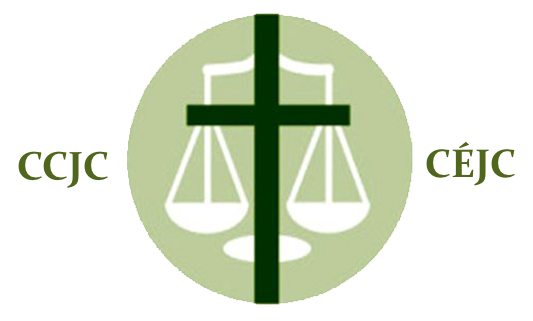Ottawa’s Vital Signs: Social Housing and Prisons – Caleb Ratzlaff, Intern Student at CCJC
On October 5, 2010, the Community Foundation of Ottawa, along with 15 community foundations across Canada, released their Vital Signs 2010 report. This is the fifth annual report that has been released in Ottawa. The report has demonstrated the unfortunate trend of mediocrity.
This year’s report highlighted a number of areas that need improvement, topping the list is homelessness. The social housing picture in the city of Ottawa is bleak. A growing waiting list with over 10 000 names of people waiting for affordable housing dramatically highlights that the city is in need of more units. The alarming increase in inequality between the rich and the poor suggest that the housing problem will not be going away anytime soon.
Compounding this issue is the state of the city’s “social” housing facility – Ottawa Carleton Detention Centre. Vital Signs reported that the proportion of the pre-trial population at the Ottawa Carleton Detention Centre (OCDC) that have been identified with mental health issues has risen from 9% in 2001-02 to 19.8% in 2009-10. Additionally, between 2000 and 2009, the average number of days to dispose of a charge in court was 222.6. For the year ending March 2010, 41.1% of the 16,212 charges pending for accused adults were pending longer than eight months, up from 38.8% in 2008-09. There are strong connections between the city’s poor marks in housing and their failing grade in the criminal justice system.
It is easy to forget about the sector of our city’s population living at OCDC. It is important to realize the connections between the city’s homeless/marginalized and individuals spending time at OCDC. The people housed at OCDC are the concern of the community and need to be treated as such.
The Alliance to End Homelessness in Ottawa reported in March of this year that there were 7,445 individuals who were homeless, 775 families with 1,317 children. We know that youth with parents serving time in the prison system are at greater risk of offending. It would be interesting to see a study done that considers the connection between these low-income families and individuals in jail.
Until such a study is completed we can examine some data from a new program started last year by the Elizabeth Fry Society of Ottawa. In 2009 the Elizabeth Fry Society of Ottawa’s Courthouse Release Program succeeded in helping 607 individuals who were released from Ottawa Provincial Courthouse cellblock. The Courthouse Release Program helped these individuals with their material needs like shoes, toiletries, bus fare as well as referrals to shelters, community resources and programs dealing with addictions, mental health, housing, anger and the sex trade. This seems to suggest that of the individuals being released from OCDC each year over 600 of them have acute needs for basic services, meaning that they are part of the demographic looking for lower-incoming housing. Indeed it is more than likely that many offenders being released from OCDC are on the 10 000+ person waiting list for social housing as reported in Vital Signs. Perhaps jail time for these individuals is seen as a way to wait out this list. According to Statistics Canada the number of petty crimes committed spikes in the month of December – over-crowding jails with people looking to sit out the cold weather and escape the festivities of Christmas because they have no home or family to enjoy them with.
It is important to note that public safety is actually enhanced when we support and welcome these individuals back into the community. In order to do this we need to ask ourselves a number of questions. Sometimes during incarceration, offenders have some access to health services, counselling for addictions, help for mental illness and assistance for other behavioural problems; is this assistance available on the other side of the wall? Will they feel or be wanted back in the community? Or will she/he feel safer in the familiar surroundings of prison and go back through that door? Are there any support systems for offenders as they leave prison, where can they go to be listened to and respected? Are there opportunities for them to find decent housing and jobs with affordable wages?
Often the “revolving door” in the justice system can be attributed to the fact that there is no community, home or life outside of prison for the offender. As a community we need to take responsibility for those individuals in facilities like OCDC and do our best to embarrass them back into society.
The Elizabeth Fry Society of Ottawa, the John Howard Society, the Salvation Army and the Courthouse Release Program are groups in Ottawa that provide assistance for people released from the Courthouse cellblock.


[fixed]
Otherwise, great article topics, they flow well…we should talk more…
Lorraine